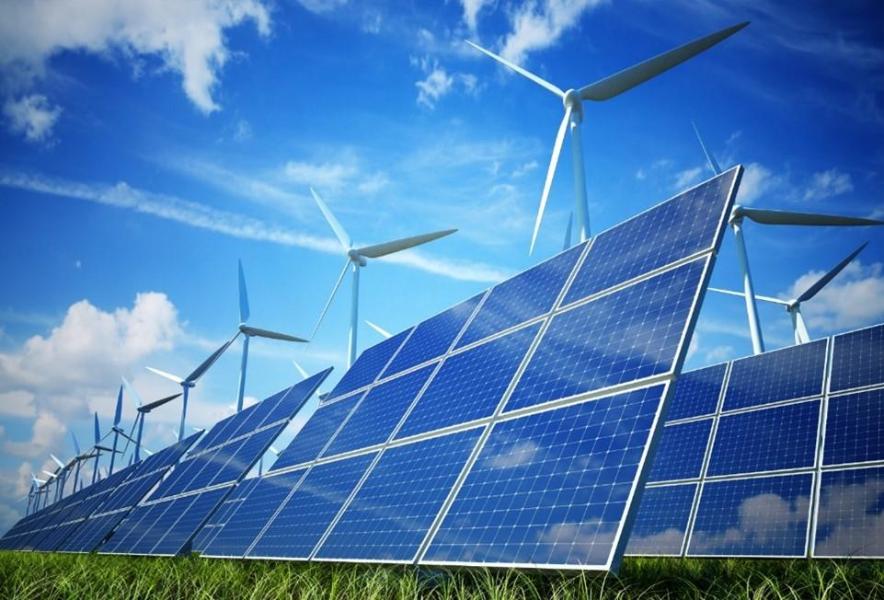
- CGEM is publishing a decarbonisation guide for Moroccan companies with EIB and EU support.
- This digital educational guide was put together by the programme’s technical assistance initiative to promote commercial exchanges and competitiveness.
- The guide is modular and designed to help readers understand the key issues and engage in a sustainable approach to decarbonisation.
CGEM has launched a digital educational guide on decarbonisation for Moroccan companies with the support of the European Investment Bank (EIB), via its new EIB Global development arm, and the European Union. This project has been implemented under the EU Trade and Competitiveness Programme developed by the EIB with EU financial support.
The support is part of the objectives of the EU-Morocco Green Partnership signed in October 2022. It is a concrete demonstration of EU and EIB commitment to helping Morocco support businesses in their green transition.
A modular guide for Moroccan companies of all sizes and sectors
Drafted in cooperation with experts working on the Trade and Competitiveness Programme technical assistance operation, the scalable guide provides clear steps and concrete solutions to help companies of all sizes and sectors to cut their greenhouse gas emissions and move towards becoming carbon neutral. It also offers examples of good practices and testimonials from companies that have successfully completed their transition.
A simplified process organised around four themes
The decarbonisation guide proposes a simplified process tailored to the specific needs of companies, providing them with a better understanding of the key climate, regulatory and competition issues connected to decarbonisation. It introduces the training and technical assistance available to businesses to help them with carbon accounting, for example. It also identifies all appropriate funding programmes, while also providing case studies and examples of relevant technologies. Lastly, since decarbonisation is an ongoing process, the guide will be regularly updated with regulatory and technology developments, and also features a section on the certifications available, enabling companies to follow the latest progress in the field.
Anticipating global change
The climate crisis is continuing and regulatory requirements for carbon neutrality across the world — together with those imposed by international buyers — are in constant flux. Companies have much to gain from anticipating these global changes by providing lower-carbon goods and services.
“Decarbonisation has become a necessity for all companies to address environmental challenges, as well as to improve their competitiveness. The Moroccan private sector is fully aware of the challenges and opportunities presented by the green transition, quickly embarking on this path in line with the ambitious sustainable development strategy adopted by Morocco under the leadership of His Majesty King Mohammed VI,” said CGEM President Chakib Alj. “Despite the potential challenges of the Green Deal and the Carbon Border Adjustment Mechanism, Moroccan companies see them as an opportunity to boost the competitiveness of national production and position the country at the heart of regional and global industrial and logistics value chains. The decarbonisation guide we are launching today aims to support this dynamic.”
“The carbon-neutral transition is a major challenge for Moroccan companies. That is why the EIB, via EIB Global, is determined to support them in this transformation to lower-carbon models. This interactive guide is a unique tool designed to help businesses to adopt innovative practices for a greener and more competitive future,” said EIB Vice-President Ricardo Mourinho Félix, who is responsible for financing in Morocco. “This guide on the decarbonisation of Moroccan companies is an important step in this decarbonisation process, and we are delighted with the very fruitful cooperation with CGEM. Our goal is to strengthen the competitiveness of Moroccan companies in global value chains.”
EU Ambassador to Morocco Patricia Pilar Llombart Cussac added: “The publication of this guide for Moroccan companies is a concrete demonstration of our partnership with CGEM and EIB to improve the competitiveness of Moroccan businesses. The decarbonisation of our economies and business activities has become an absolute necessity in the face of the climate emergency, but is also an opportunity to improve the competitiveness of Moroccan companies. Decarbonisation is a vital investment in a healthier environment for our children and future generations. The process gives rise to a number of questions that this guide aims to answer. This action with our partners is perfectly in line with the EU-Morocco Green Partnership, which commits us to working together to address the cross-border climate emergency. And the private sector has a central role to play in this partnership.”
Background information
European Investment Bank
The EIB has been a key partner for Morocco for more than 40 years. It finances the development and implementation of important projects in vital sectors of the Moroccan economy such as business support, agriculture, water and sanitation, education, health, transport, urban development and renewable energy.
EIB Global is the EIB Group’s specialised arm devoted to increasing the impact of international partnerships and development finance. It is designed to foster strong, focused partnership within Team Europe, alongside fellow development finance institutions and civil society. EIB Global brings the Group closer to local people, companies and institutions through our offices around the world.
https://www.linkedin.com/company/eib-global/
The European Union in Morocco
The European Union — the result of an economic and political partnership between 27 European countries — plays a major international role via diplomacy, trade, development aid and cooperation with international organisations.
The European Union's main goal in Morocco is to work on its partnership with the country, providing financial support for the political, economic and social reform process, as well as negotiating and implementing trade agreements that are beneficial for the European Union and Morocco.
Confédération Générale des Entreprises du Maroc (CGEM)
CGEM is the voice of the Moroccan private sector. It has established itself as the official representative of the private sector to public authorities, social partners and institutions.
CGEM has 90 000 direct and affiliated members, 95% of which are micro, small and medium-sized enterprises (MSMEs). It covers all economic activity in Morocco via its 37 statutory professional federations.